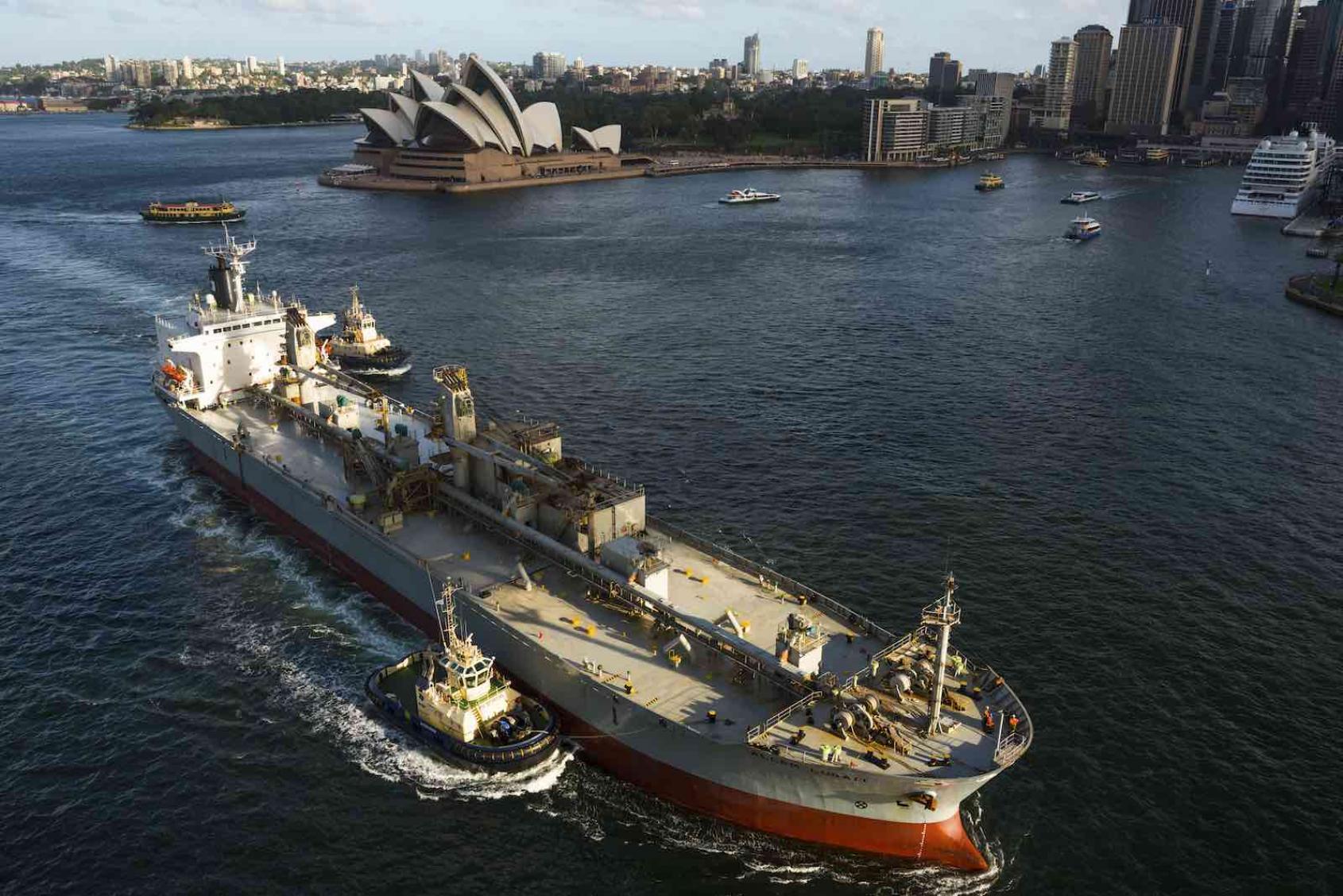
Shipping experts have welcomed a ‘unity ticket’ on Australian jobs and fuel security ahead of the country’s election Saturday. But the ITF and its affiliates warn that rogue lobbyists, Shipping Australia, risk undermining the policy advances on cabotage and have called on its supporters in the industry to abandon it.
“We welcome the policy shift from the conservative side of Australian politics towards accepting the need for a national fleet and a robust cabotage policy as critical to Australia’s economy and security,” said ITF General SecretaryStephen Cotton.
Cotton said with the announcement by Deputy Prime Minister Barnaby Joyce last week, that “There is finally a pro-cabotage, pro-jobs unity ticket in Australian politics. That’s a good thing. But we need to see that commitment replicated in the boardroom of shipping companies. Right now, there is clearly one outfit which is only out to sink Team Australia, and ironically – that’s Shipping Australia Limited.”
Responding to the lobbyists’ call this week for the Liberal and National parties to drop their new pledge, Cotton said it was SAL which should be abandoned.
“The pandemic, the crew change crisis, the supply chain crunch – time and again Shipping Australia Limited has failed to demonstrate anything other than self-interest. In fact, they’ve been active in working against the important commitments that are made by their members at the global level to work constructively on these issues,” he said.
“We will be asking the international shipping lines who we work with to suspend their resourcing of Shipping Australia Limited until such time as it can put aside the belligerent attitude which has left them not only unrepresentative of industry – but irrelevant in influence.”
“Now, at a time of war in Europe, a more assertive China in the Pacific, and record climate effects at home, Australia cannot afford to have wreckers purporting to be the voice of this critical sector,” said Cotton.
SAL gets an ‘F’ for comprehension on cabotage
“The article published by SAL reads for exactly what it is - a desperate, lopsided puff-piece that is full of generalisations and lacks a grounding in reality,” said Canadian policy expert Chris Given, who is also chair of the ITF Cabotage Task Force.
“There is an excellent argument for why the vast majority of global maritime nations, including most of Australia’s trading partners, have cabotage regulations and national fleet policies in place - they work as intended and they benefit the domestic economies, industries and workforces where they exist, whilst also protecting the environment.”
“If SAL cared about Australians as much as they allude to in their article, then they’d get on board with sensible, bipartisan policy plans instead of pedalling a false-narrative that has been proven false, time-after-time,” said Given.
ITF Maritime Coordinator Jacqueline Smith, said the ITF and its affiliates had been campaigning globally to strengthen cabotage regulations, underlining the importance of domestic jobs to national economies. In Canada, for example, in circumstances where national crew are not available, international seafarers are employed on the same domestic employment conditions. Cabotage was key to securing quality seafaring jobs in national trades, said Smith.
“The Australian community deserve the benefits of cabotage that the residents of other countries enjoy: more local jobs, a national fleet should disaster strike, and fuel security in these uncertain times. It’s fair to say that Australians deserve much better than SAL,” she said.
ITF Seafarers’ Section Chair and Secretary-Treasurer of the US-based Seafarers’ Union International, David Heindeladded: “Shipping Australia should stop throwing caution into the wind, and instead digest some facts. The benefits of a strategic fleet and cabotage laws are self-evident, that is why countries covering 80% of the coastlines of UN Maritime States have cabotage regulations.”
Cabotage to benefit Australia’s national interest
Seafarers’ Rights International, the centre spearheading international research on the seafarer and maritime law today also said that Shipping Australia Limited’s position does not take into account the international situation regarding the widespread use of cabotage by a significant majority of maritime coastal states.
SRI Executive Director, Deirdre Fitzpatrick, said that today there are around 91 states with cabotage laws, where the policy objectives of these governments are, for example, to: maintain national security; promote fair competition; develop human capacity; transfer maritime knowledge and technology to nationals; create jobs for nationals; increase ships on the national register; promote ship ownership, building and supply services; promote safety and security of ships in port; enhance marine environmental protection; encourage transportation by sea; and provide public services.
“SAL provides no indication as to why the policies in these 91 countries have been ‘profound failures’, as they describe the policies in Australia and the United States. SAL also ignores the fact that cabotage policies have existed in some states for centuries, and that today they exist across all political, economic and legal systems and across a majority of the world’s coastlines. Nor does SAL recognise that these cabotage laws continue to evolve in the national interests of these countries,” said Fitzpatrick.
“The ‘scrapping’ of cabotage in Australia - as lobbied for by SAL - may well financially benefit some of the members of SAL. But the new government of Australia must serve the national interests of the country as a whole,” Fitzpatrick concluded.


Post new comment